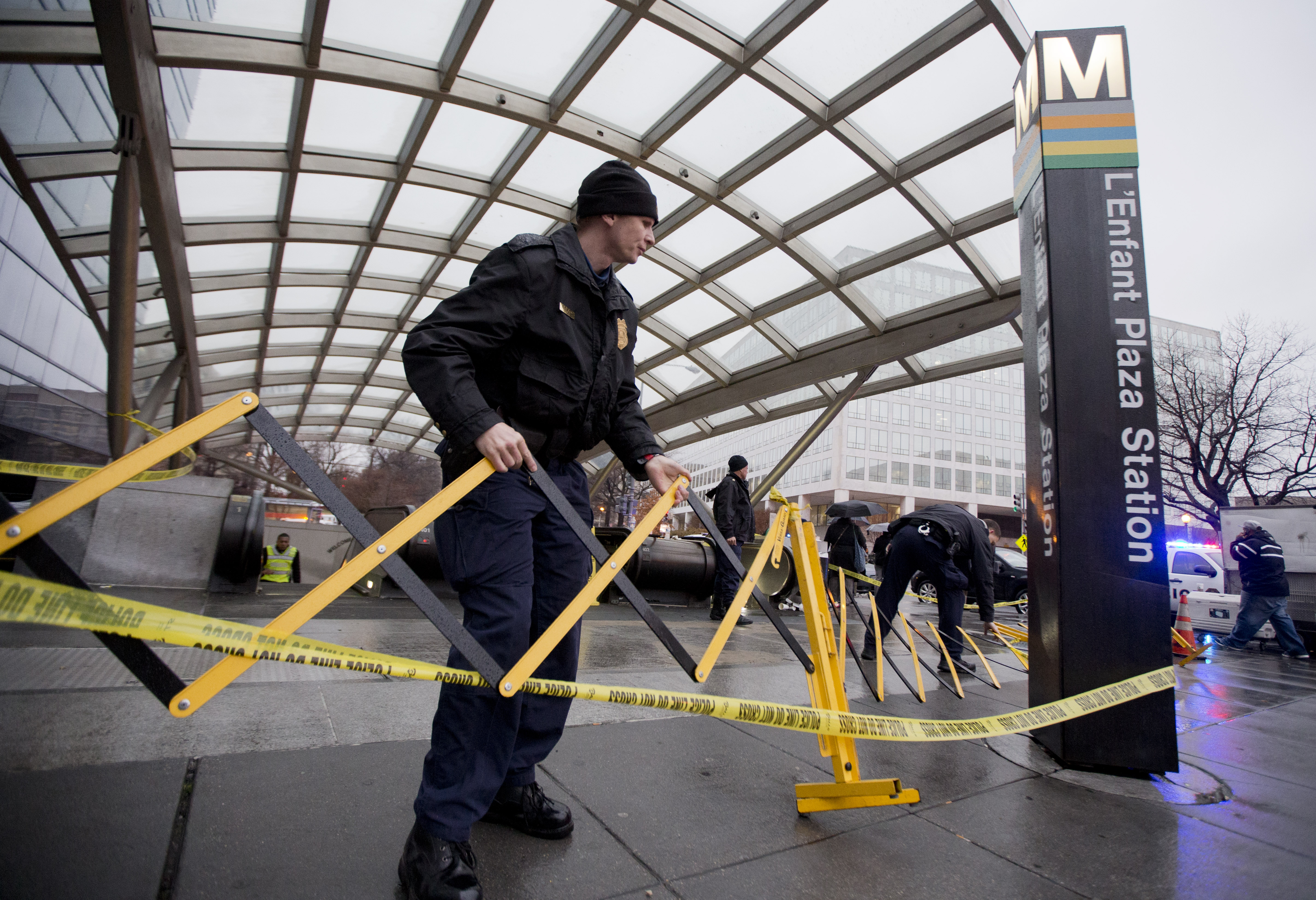WASHINGTON — A Metro worker blamed for falsifying records about the tunnel fans that failed during last year’s deadly smoke incident near L’Enfant Plaza has been granted his job back by an arbitration panel — and Metro’s largest union has just filed a lawsuit against Metro because the worker hasn’t been reinstated yet.
Court documents obtained by WTOP show Mechanic AA Seyoum Haile was fired by Metro the month after Carol Glover died on a smoke-filled Yellow Line train. Metro found that preventive maintenance activities that Haile had signed off on for a fan shaft near the smoke incident had not really been done.
The Metro investigation found that no computer logs from the Rail Operations Control Center or radio recordings showed any evidence that the appropriate tests had been done Nov. 6, 2014, despite paperwork filed by Haile that indicated the tests had been completed.
“You have shown a pattern of routinely falsifying [preventive maintenance] records for fan shaft FL-01 a critical fire/life-safety system, to include falsely representing communication with an Operator from an earlier test at a different fan shaft,” the Metro investigation concluded.
Haile also had signed off on tunnel fan tests at the same site last Oct. 3 and Sept. 24; there is no audio or computer evidence of that testing either. There is no evidence that the fans were turned on by Haile or his partner at the fan site.
Metro’s ventilation failures were among key factors blamed for Glover’s death.
Haile challenged his firing immediately in February 2015, and the grievance under the union’s collective bargaining agreement went to arbitration in fall 2015. The union argued “a more systemic problem” led to Metro’s decision to fire Haile.
“Local 689 argues that blaming the grievant for the January 12, 2015 ‘breakdown of tunnel fan FL-01 is a misplacement of responsibility and the discharge should be overturned,” the arbitration report read.
The union argued Haile is a good mechanic in a systematically flawed environment in which inaccurate and incomplete maintenance reports were not unusual. The union also pointed to the fact that the less-experienced partner Haile was working with got just a three-day suspension.
Metro argued that Haile intentionally concealed his failure to test tunnel fans and violated Metro’s cardinal safety rules. The arbitration report said Metro argued that it “no longer trusts him; and that his continued employment is a safety risk.”
The arbitrators concluded that the root cause of the problems was a culture at the time that included ineffective communication between the maintenance workers along the tracks and the Rail Operations Control Center which is supposed to remotely test fans for emergency situations. They added that “systemic maintenance practices … tend toward mitigation of discipline.”
Among the practices at issue is that Metro would accept blank checklists, that did not indicate proper tests had been done, without raising any concerns. Some evidence was also presented that Metro called Haile into the office immediately after Carol Glover’s death to adjust fan testing records.
“Mechanics might need to wait ‘an hour or two’ for ROCC operators, and to exercise patience with repeated interruptions,” the report read. “But there is a distinction between putting up with delays and operators unsuccessful in exercising fans when requested. While that does not excuse the grievant from reporting incomplete work as complete, it places the misconduct within a context which may have made it not unreasonable for him to return the following day to complete work.”
Haile had 13 years of seniority and had only been disciplined once. He was suspended 10 days, and “nearly terminated,” in Metro’s words as quoted in the report, in 2009 after he left work without permission to run a personal errand.
Metro said it suspended the junior partner he was working with only three days because there were signs he “came clean” in some later interviews.
“The grievant’s misconduct was serious. However, in the light of all the evidence, it was not so serious as to be disruptive of the employment relationship. The penalty must be rehabilitative, rather than punitive, and mitigating circumstances must be considered,” the arbitration report concluded.
“While discharge may have been warranted but for systemic issues, in all likelihood, progressive discipline will be effective,” the report signed by the arbitration panel’s neutral chairman said.
In the April decision,the panel reduced the discipline to a 180-day suspension without pay and without loss of benefits or seniority.
The lawsuit filed Wednesday asks a federal judge to confirm that Haile should be back on the job.
“Despite repeated assurances from WMATA, the grievant Seyoum Haile has not been reinstated, granted full seniority and benefits,” Amalgamated Transit Union Local 689 said in the filing.
The lawsuit was filed now because a 90-day time period when Metro could have moved to vacate or correct the arbitration award has expired.
In a statement late Thursday afternoon, Metro General Manager Paul Wiedefeld said Metro will move to get the arbitration panel’s decision overturned by a judge.
“We strongly disagree with the arbitration award given the employee’s egregious acts. We intend to file a motion in District Court to vacate the arbitration award,” the statement said.







